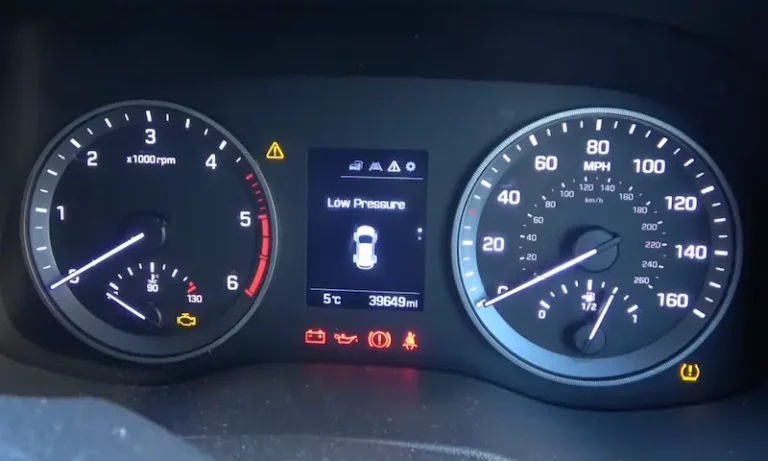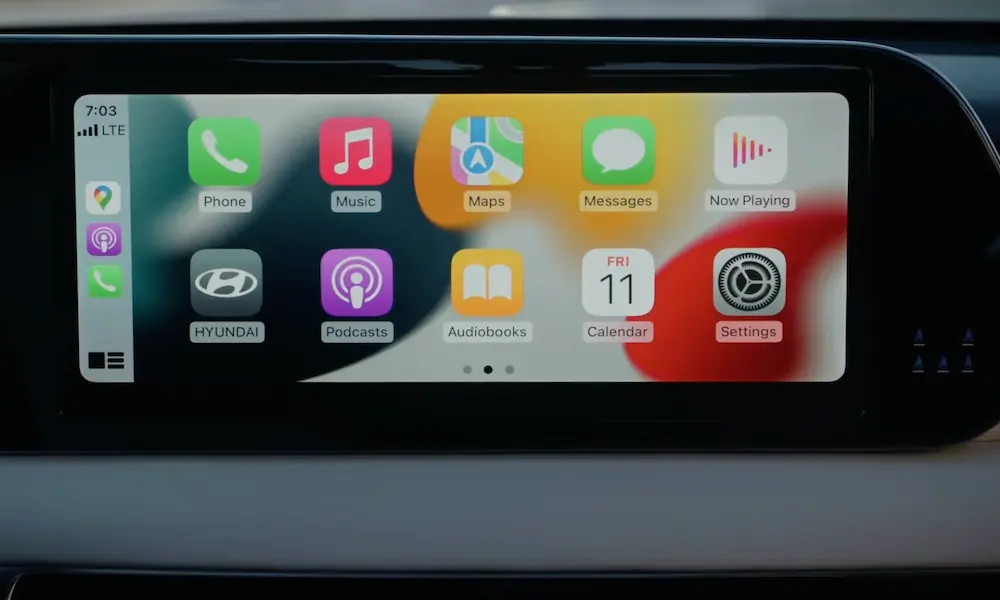Hyundai’s Tire Pressure Monitoring System (TPMS) is designed to keep you informed about your tire pressure levels, helping to maintain safety and efficiency on the road. Occasionally, you might encounter issues or problems with your TPMS.
Understanding common TPMS problems in Hyundai vehicles can help you identify when it’s necessary to seek assistance or perform maintenance. In this article, we will discuss these issues and offer guidance on how to resolve them, ensuring your tires are well-maintained and ready for the road ahead.
Identifying TPMS Problems
Warning Light Indicators
When you experience Hyundai TPMS problems, it’s typically the TPMS warning light in your instrument panel that alerts you first. This light helps you identify a potentially low tire pressure situation, which can lead to decreased fuel efficiency and uneven tire wear. Remember, the TPMS warning light indicates more than just low tire pressure. It may also be warning you of a more severe issue within the system that requires attention. You should contact an ASE Certified technician to further diagnose the situation.
Tire Pressure Monitoring System
Your Hyundai is equipped with a Tire Pressure Monitoring System (TPMS) that monitors the tire pressure for all four wheels. It uses sensors, receivers, and initiators to communicate the data to your car’s instrument panel. Typically, TPMS issues arise from incorrect tire inflation pressure, malfunctioning sensors, or electrical problems. So, it’s essential to regularly check your tire pressure against the manufacturer’s recommendation and keep an eye out for any abnormal symptoms.
Diagnostic Information
To address your Hyundai TPMS problems effectively, you’ll need to gather the right diagnostic information. Start by inspecting the warning light indicators and check for any relevant error codes. If you notice the TPMS light is still on after inflating your tires to the proper level, there might be another issue at hand, such as a drained battery or wiring problems. When in doubt, consider consulting the Hyundai TPMS Fault Diagnosis guidelines or seeking professional assistance from a certified technician.
Remember, accurate diagnosis and proper maintenance of your TPMS system is key to ensuring a safe and efficient driving experience. Stay vigilant and act promptly when issues arise, keeping your car and tires in top shape.
Common Hyundai TPMS Problems and Solutions
As a Hyundai owner, you might encounter some issues with your car’s Tire Pressure Monitoring System (TPMS). In this section, we will discuss common Hyundai TPMS problems and their solutions, focusing on electrical failure, broken accelerometer, low TPMS battery power, blocked pressure port, and inappropriate handling.
Electrical Failure
Sometimes, the TPMS sensor may malfunction due to electrical failure. It can cause your TPMS warning light to illuminate even if your tires have the correct pressure. To resolve this issue, have your TPMS system checked by a professional who can diagnose and fix any electrical problems in the circuit.
Broken Accelerometer
A broken accelerometer in the TPMS sensor may lead to inaccurate tire pressure readings or a constantly illuminated TPMS warning light. If you suspect a faulty accelerometer, visit a Hyundai service center to have your TPMS sensor inspected and replaced if necessary.
Low TPMS Battery Power
Over time, the battery inside your TPMS sensor will deplete, affecting its ability to accurately gauge tire pressure. If you notice your TPMS warning light flashing, this could be a sign of low TPMS battery power. In this case, it’s essential to visit a Hyundai service center to replace the sensor, ensuring your TPMS system continues to function properly.
Blocked Pressure Port
Your TPMS sensor may not be able to provide correct tire pressure readings if there is a blockage in the pressure port. Common culprits include dirt, debris, or corrosion. To prevent this issue, make sure to maintain your tires regularly, keeping them clean and free from debris. If your TPMS warning light illuminates and your pressure port is blocked, have it cleaned or replaced by a professional.
Inappropriate Handling
Inappropriate handling during wheel or tire removal or servicing can lead to TPMS sensor damage, causing faulty readings or malfunctioning system. To avoid this, always ensure your tires are serviced by trained professionals who are familiar with Hyundai TPMS sensors and their proper handling techniques.
By being aware of these common Hyundai TPMS problems and their solutions, you can take the necessary measures to maintain your tire pressure monitoring system. If you encounter any of these issues, consult with a Hyundai service professional who can guide you in fixing the problem and preserving the safety and efficiency of your vehicle.
Warranty, Liability, and Auditing
Warranty Claims
If you’re experiencing Hyundai TPMS problems, you’ll be happy to know that as long as you haven’t replaced the tire pressure sensors, they should be covered under your Hyundai’s 5-year/60,000-mile new vehicle limited warranty. To submit a warranty claim, ensure that you follow any required procedures and keep records in case you need to provide documentation later.
Liability Claims
When it comes to TPMS issues, it’s important to be aware of potential liability claims. The dealer or tire shop is actually responsible for your vehicle’s TPMS functionality as soon as they start working on your wheels. According to Bartec USA LLC, if the TPMS warning light is still on after the work is completed, the dealer cannot allow you to drive your car away, as they might be held liable for any further problems or potential safety hazards.
TPMS Auditing Process
To help avoid liability claims and comply with warranty requirements, an audit trail is crucial. Keep track of your inspections and maintenance practices by using a tire gauge to regularly check your tire pressure. Properly documenting the detection and resolution of TPMS issues can support a warranty claim or cover the dealer or tire shop in case of potential liability claims. Keeping an organized and well-maintained audit trail is not only a good practice but also ensures your vehicle’s safety and proper function.
Remember, while dealing with Hyundai TPMS problems, knowing your warranty and liability rights, and maintaining an audit trail can be instrumental in finding a resolution that protects both you and your vehicle.













